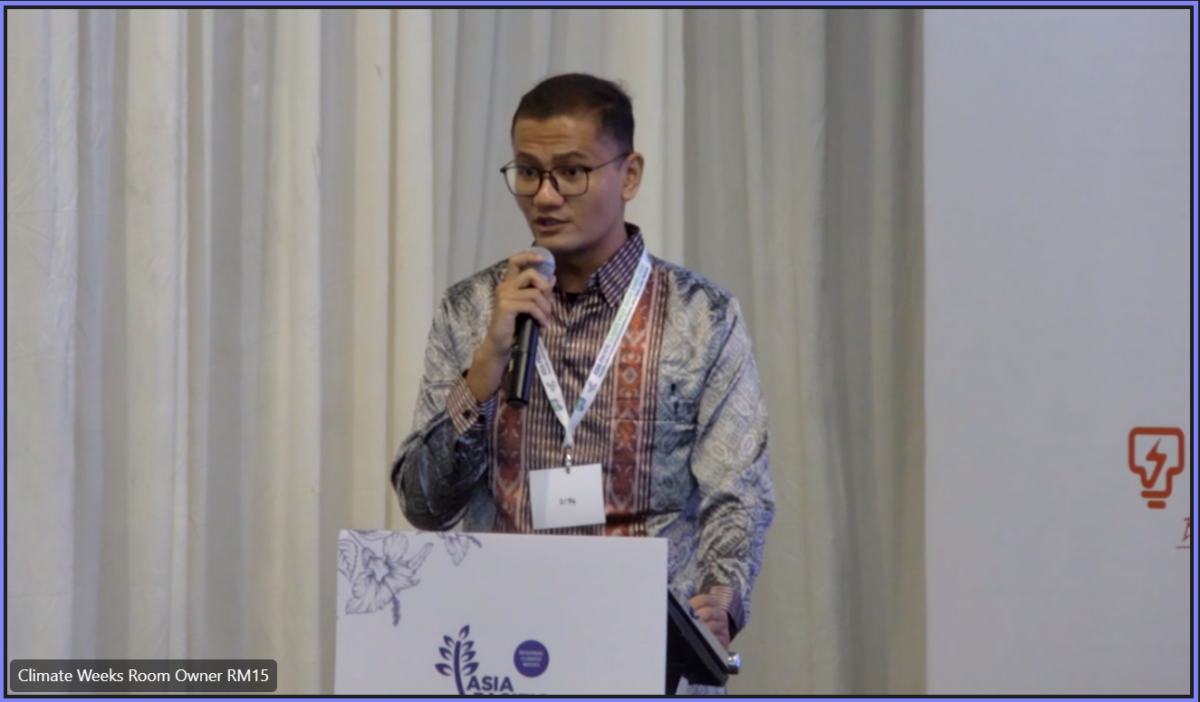Johor Bahru, 15 November 2023 – In achieving the agenda of global energy transition, the Southeast Asia region is taking measures to climate action including its non-state actors. Meaningful participation from non-state actors is crucial in observing the currently running policies and providing input for future improvements.
Stocktaking becomes a crucial activity to track the current progress of climate mitigation and action. The results of the assessment then can be utilized to design robust policy recommendations. Non-state actors can enrich the nuance of the global stocktake by convening and aligning climate action with the interest of the global community.
Wira Agung Swadana, the green economy program manager at the Institute for Essentials Services Reform (IESR) highlighted the key takeaways from the first global stocktake during the Asia Pacific Climate Week 2023 in the session “Integrating the role of NSAs focused on the thematic areas–Adaptation, Finance, and Mitigation”. The imbalance in growth of global emissions compared to the climate mitigation plan leads to issues such as the urgency to have systemic transformation.
“We need more ambition in action and support during the implementation of the mitigative action in the region,” he said.
Wira added that achieving net-zero emissions requires systemic transformation across all sectors, and we need to tap into every opportunity to achieve higher output. The business and commercial sector is an important factor in accelerating energy transition as they consume massive amounts of energy. Besides, some of the industries (especially those involved in multinational-scale supply chains), have the obligation to green their business process.
“What the government can do for business (to decarbonize their operations) is to provide an enabling environment if they want to shift to more sustainable business process. For instance, the government can give incentive and disincentive based on the choice of energy resource used to power the businesses,” Wira concluded.
Jingjing Gao, from the UNEP Copenhagen Climate Centre, added that the private sector-led initiative is worth noting. Yet, there is still a gap in data incorporation from the private sector.

